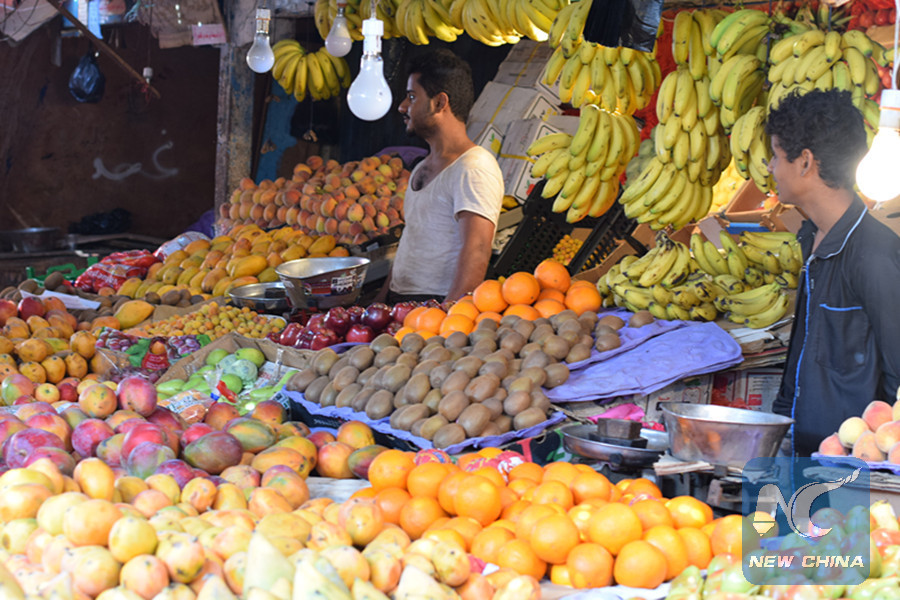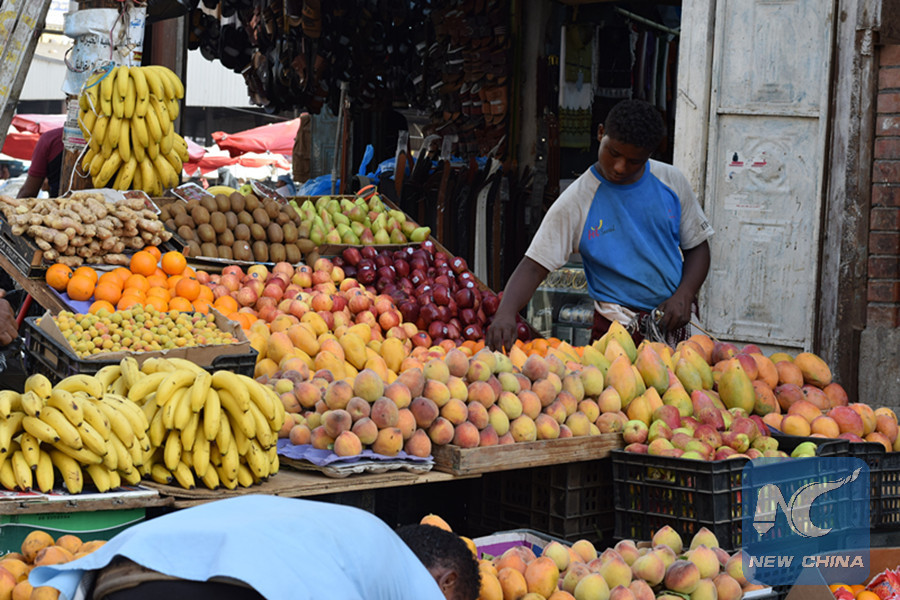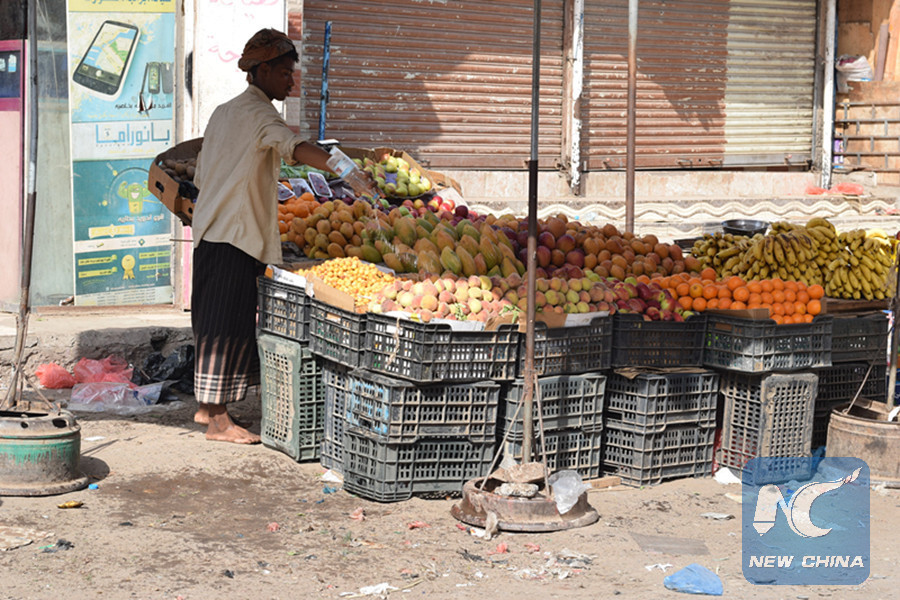
People in the war-ridden Yemen complain about soaring prices of vegetables, fruits and other essentials as Ramadan began, a holy month in which Muslims worldwide abstain from eating and drinking from dawn to dusk. (Xinhua/Murad Abdo)
by Murad Abdo
ADEN, Yemen, May 7 (Xinhua) -- People in the war-ridden Yemen complained about soaring prices of vegetables, fruits and other essentials as Ramadan began, a holy month in which Muslims worldwide abstain from eating and drinking from dawn to dusk.
In different retail markets in the southern port city of Aden, prices of the ingredients used particularly for preparing Iftar meals such as tomatoes, potatoes, beans, and onions showed an upward trend.
During the first two days of Ramadan, many consumers from fixed and low-income groups said that the skyrocketing food prices deprived them of enjoying the joy and spirituality of their religious month.

People in the war-ridden Yemen complain about soaring prices of vegetables, fruits and other essentials as Ramadan began, a holy month in which Muslims worldwide abstain from eating and drinking from dawn to dusk. (Xinhua/Murad Abdo)
In Aden, tomatoes are sold for 700 Yemeni riyals (2.8 U.S. dollars) per kg, onions for 400 riyals per kg, potatoes for 600 riyals per kg and lemons for 500 riyals per kg. The costs of watermelons and mangoes have increased, but bananas remained stable.
"Traders are using this month as an opportunity to multiply prices much more than before Ramadan. We are tired of the soaring vegetables and fruits prices," said Abu Haroon, an Aden-based citizen.
"During the first days of Ramadan, prices of various vegetables and fruits shocked us and everything has become so expensive suddenly," he said.
He added that budgets of the Yemeni people who are still suffering from years of deadly conflict can't meet the skyrocketing prices of commodities anymore.
Suhail Ahmed, a shopper, told Xinhua that many low-income families decided to cancel buying fruits and vegetables for their Iftar meals during Ramadan due to the soaring prices.
Suhail said that "fruits and vegetables are absent in the Iftar meals of Ramadan this year for the first time in years of the country's crisis."
He added that "basic commodities including flour and sugar were barely secured by many Yemeni families several days ahead of Ramadan."

People in the war-ridden Yemen complain about soaring prices of vegetables, fruits and other essentials as Ramadan began, a holy month in which Muslims worldwide abstain from eating and drinking from dawn to dusk. (Xinhua/Murad Abdo)
Traders and street vendors justified the rising prices of foodstuffs, particularly fruits and vegetables, as a result of an increasing demand and low of supply during Ramadan.
They said that many other factors triggered this price hike, including blocked roads as a result of the ongoing fighting in areas linking the southern provinces with the northern Yemeni provinces, where many vegetables and fruits come from.
Safyan Bin Ali, a street vendor, said that transportation of vegetables and fruits from other neighboring provinces into main cities like Aden faced difficulties in recent days amid an escalation of fighting that led to the destroying of key roads and bridges.
"Actually we buy vegetables and fruits at high prices from the the wholesalers who are complaining of high transportation costs and lack of fuel," said Safyan.
"Some vehicles specialized for transporting vegetables and fruits are frequently targeted by shelling along the main roads, which is another obstacle that contributes to the price hike," he added.
In addition, the continuing depreciation of Yemeni riyal further worsened the economic condition of the country. In the street markets in Aden, 1 dollar is traded for 534 riyals, up from 215 riyals before the war.
Yemen has been locked in a civil war since the Houthi rebels overran much of the country militarily and seized all northern provinces, including the capital Sanaa, in 2014.
Saudi Arabia leads an Arab military coalition that has intervened in Yemen's conflict since 2015 to support the government of President Abd-Rabbu Mansour Hadi after Houthi rebels forced him into exile.
The prolonged military conflict has aggravated the suffering of Yemenis and deepened the world's worst humanitarian crisis.

